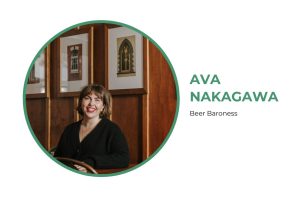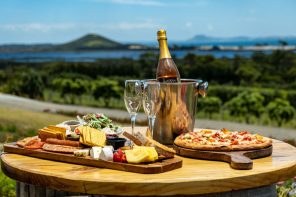In 2016, New Zealand topped the list of worldwide Google searches for paleo, beating out Hungary, Australia and the United States. It is estimated that around 1 percent of the population adhere to a paleo diet. Studies have found that around 10 percent of New Zealand adults are vegetarian, up from 1 percent in 2002 – a stunning 900 percent rise in just 15 years. There are no official statistics on veganism in New Zealand, although Google Trends shows a significant increase in searching ‘vegan’, with New Zealand one of the highest in the world. Mintel’s New Product Database shows that product launches with vegan or vegetarian claims are strong in Europe, with Germany accounting for 18 percent of global vegan product launches
“Veganism is now seen as a trendy lifestyle,” said Mintel food and drink analyst Katya Witham. “Today, vegan products attract attention from a much wider audience, namely health and ethically driven, flexi-vegan consumers.”
With alternative eating habits on the rise nationwide, how restaurants cater to a particular diet can play a key role in their marketing. However, just as equally, a restaurant can choose not to promote that it is wholly vegan, vegetarian, gluten free or keto, choosing to normalise the diet by allowing diners to eat without being clouded by preconceptions.
“We keep the vegetarian and vegan-friendly factor of our meals as a focal point across all of our marketing, from in-store menu to social media marketing,” said Alex Brayne, director of Misters Real foods in Auckland. “Most of our menu is plant-based with the option to add animal protein rather than having to omit it as per the standard approach. This makes our menu really easy for vegans and vegetarians to navigate and has a feel of inclusivity but also suits the entire market as the bulk of everything we eat is plant-based anyway.”
“The words vegan and vegetarian really generate a lot of connotations,” he explained. “We want people to think less about food as ‘vegan’ or ‘vegetarian’ and focus instead on what they’re actually eating is important. You can call something a ‘vegetarian curry’ or you could call it an ‘eggplant and cashew curry.’ That way no one is really thinking about being forced in to a box or pigeonholed.”
The same goes for Hectors Restaurant at Auckland’s Heritage Hotel, which has been developing its vegan menu since 2011.
“We work to providing a range of international influences in the vegan menu range, with satisfying sized portions and attractive dishes,” said Heritage Auckland executive chef Gerrard O’Keefe. “We run a vegan menu in tandem with an omnivorous fare which means families and couples can dine from either menu together.”
The Lord of the Fries burger chain, which has outlets in Auckland and Queenstown, offers little in the way of clues that what the food on offer is entirely vegan. Its website repeatedly states that it is vegetarian, but doesn’t admit to being vegan until the end of the “Our Story” page. The online feedback is littered with reviews from people who didn’t realise that the food they had purchased contained no animal products whatsoever.
Alex Davies of Gatherings in Christchurch has taken a similar approach, believing that the best way to normalise vegetarian and vegan diets is to not talk about it.
“We don't sell ourselves as a vegan or vegetarian-friendly restaurant because we see this as the future of food,” he explained. “Cooking this way is the only way in which to properly showcase seasonality. We don't ostracise anyone within the community by selling it as vegetarian or vegan – it is just good food, and we can then openly engage our guests in the conversation of sustainability.”
Kitty Lin of Green Time in Auckland agrees.
“Vegan and vegetarian food is not ‘new’ or ‘out there’,” she said. “It may be a shift away from the mainstream but has always existed. We love good, real food and want to provide healthy, sustainable, alternative options that everyone can enjoy. We just make food that we want to eat, using plant-based ingredients.”
In Auckland, Catroux makes fresh keto lunchboxes every day from Monday to Friday, advertising them on Instagram. The Auckland café isn’t alone in promoting its keto offerings via social media – Daily Dose in Dunedin posts keto menu offerings on Facebook, as does Urban Kitchen and Deli in Napier.
However keto, like paleo, it is relatively easy to accommodate for. Consumers following the keto or paleo diets are often looking for restaurants that are willing to cater towards their requirements, such as swapping out rice for cauliflower rice or simply having menu items that are keto or paleo by default. There are few venues in New Zealand that use being keto or paleo in marketing themselves in the same way that those which are vegan, vegetarian or gluten-free do.
The question still remains – will New Zealand be able to move away from its meat-producing past? The recent furore surrounding Air New Zealand and the Impossible Burger seem to suggest the country isn’t quite ready. Winston Peters said he was “utterly opposed to fake beef,” and NZ First Primary Industry spokesman Mark Patterson said it was a “slap in the face” to the New Zealand meat industry. While Lord of the Fries is pleasantly surprising unsuspecting consumers, there were still plenty leaving feedback saying that they would never eat there because of an distrust for fake meat.
Restaurants and cafés are doing their best to normalise alternative diets in their own way and given the statistics showing these diets on the rise, despite opposition, it appears to be working.






